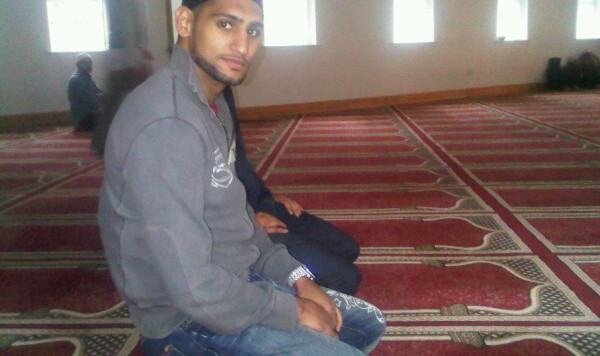The sun is setting on Floyd Mayweather’s career — he’s 37, obscenely wealthy and has been so dominant that there is little left for him in boxing. To carry on could mean defying gravity like Bernard Hopkins, or to become a shadow of your former self, like Roy Jones, Jr.
Why risk it when he could happily spend the rest of his days befriending and defriending famous rappers and searching for ever more fantastic hats? Yet, out the door and round the corner stretches the queue of fighters itching for their shot at the throne. To Mayweather’s eyes they might seem like an endless, willing supply of cash and glory.
Potential (and extremely vocal) opponent Amir Khan has counted himself out of Mayweather’s next bout, scheduled for Sept. 13. As a devoted Muslim, Khan feels that he would not have time to prepare for the fight following Ramadan, where Muslims abstain from eating and drinking during daylight hours.
As Ramadan falls from June 28 until July 28 this year, Khan would only have around a month and a half to properly prepare for the biggest fight of his career. He has commented on the difficulty of training during Ramadan in the past.
“Fasting makes you feel week,” he said. “You have to wake up at four or five in the morning to eat, but you’re knackered and you don’t feel like food, you have to force it down.”
However, Muslim athletes faced with the same dilemma have found ways to observe Ramadan without compromising their preparation for a major event. For example, several Muslim athletes competing at the London 2012 Olympics, including Mo Farah, made the difficult decision to miss Ramadan while making a commitment to fast at another time of year.
The idea of deferring a fast is supported by several Islamic scholars, including Ajmal Masroor of the Islamic Society of Britain and the members of the High Egyptian Islamic Council, who believe that exceptions can be made for elite athletes like Farah, during competition and training. Moroccan scholars advised Olympic rower Moe Sbihi of another solution: For every day of Ramadan he did not fast, he provided 60 meals for the poor.
There is also a precedent in boxing, as former featherweight champion Prince Naseem Hamed would fast during the day and train at night during Ramadan. This method was suggested by Golden Boy’s Richard Schaefer but Khan has rejected the idea.
Of course the choice whether to fast or not is a personal religious decision for all Muslim athletes and the fact that other athletes have approached fasting in other ways should have little impact on Khan’s individual observance of Sawm, the commitment to fasting, which is one of Islam’s “Five Pillars.” Fasting is also a personal physical decision. Moe Sbihi has said that he performs just as strongly when he is fasting, while Khan says he feels weak.
Having said that, Khan has fought during Ramadan in the past. Khan had been fasting for more than three weeks when he beat Scott Lawton in four rounds. However, eight days into Ramadan the following year, Khan suffered a shock first round knockout at the hands of Bredis Prescott. It is not clear whether fasting was a factor in his first defeat, but it may be telling that since then he has been careful to leave at least three months between the end of Ramadan and his next fight.
Mayweather’s choice to fight in mid-September is hardly a surprise. Floyd has fought exclusively in the months of May and September for the past six years, following his December 2007 defeat of Ricky Hatton. Yet Khan has suggested that the decision is a ploy to avoid the matchup.
“Maybe my fasting gives Floyd the excuse he has been looking for not to fight me,” he said, “If he offers the fight in September, he knows it will get turned down. That way he can turn around and say Amir Khan did not want the fight.
“They’re aware of all this, so why can’t they wait a couple of months?”
Khan should know better than to try and negotiate with Mayweather. Like all of Mayweather’s opponents, he is very much the B-side of the match-up and should consider himself very lucky if he gets his shot, and the payday, at all.
After the fight in September, there are only two guaranteed fights on Mayweather’s deal with Showtime, and a wealth of fighters wanting their chance at toppling him or avenging a previous defeat. There is also always the danger, however unlikely, that the long-awaited Mayweather/Manny Pacquiao bout could happen, after which Mayweather – win or lose – may not feel the need to carry on.
Khan has made it very clear that he will not forgo Ramadan to fight in September. His commitment to his faith when faced with such an opportunity is to be commended. Yet Khan has said he would be upset if he never faced Mayweather, he must be asking at the back of his mind, will I kick myself in years to come?
This BBC Radio Documentary takes a look at the pressures on Muslim athletes training and competing during Ramadan.

